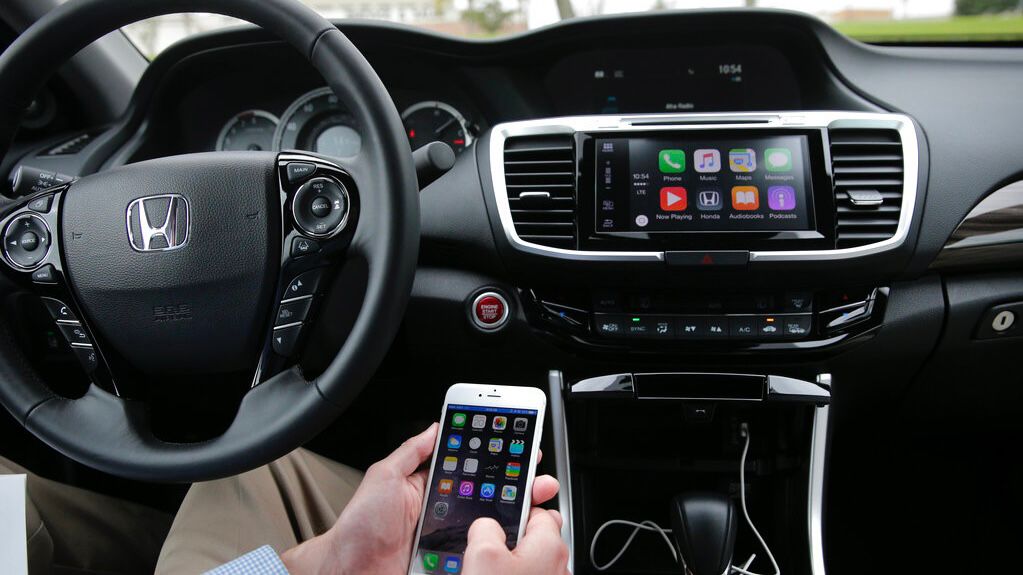The Commerce Department proposed rules Monday that would prohibit vehicles sold in the United States from using hardware and software produced by China or Russia.
Citing national security concerns with both countries over connected vehicle systems that allow cars to communicate using Bluetooth, cellular service, satellite or Wi-Fi, the department proposes banning the import or sale of such systems that are designed, developed, manufactured or supplied by any entitles connected with either government.
“Chinese automakers are seeking to dominate connected vehicle technologies in the United States and globally, posing new threats to our national security, including through our supply chains,” the White House said in a fact sheet. “The Biden-Harris administration is committed to ensuring that our automotive supply chains are resilient and secure from foreign threats.”
Almost all new cars sold in the United States contain at least some vehicle connectivity system that allows them to communicate with the outside world using Bluetooth, cellular, satellite or Wi-Fi. Most also include automated driving systems such as lane-keeping assistance, blind spot monitors and emergency braking.
Both types of systems rely on hardware, such as microphones, cameras and radar, as well as software. The typical car can include 30,000 parts sourced through an intricate supply chain, with most pieces coming from Mexico, China, Japan, the U.S. and Germany.
“You can’t just flip a switch and change the world’s most complex supply chain overnight,” Alliance for Automotive Innovation President John Bozzella said in a statement Monday responding to the proposed rules.
The alliance, which represents major automakers selling vehicles in the United States, agrees with the Commerce Department that the information, communications technology and services systems in connected vehicles avoid suppliers from China and other countries of concern.
Bozzella noted there is very little hardware or software in the connected vehicle supply chain today that comes to the U.S. from China. He said the proposed rules will nevertheless require automakers in some cases to find different suppliers.
“The lead time included in the proposed rule will allow some auto manufacturers to make the required transition but may be too short for others,” he said.
If enacted, the Commerce Department’s software prohibition would take effect for the 2027 model year. The hardware prohibition would take effect for the 2030 model year,
The proposal is the latest Biden-Harris administration action to counter the threat of Chinese vehicles entering the U.S. marketplace. In May, the president increased tariffs from 25% to 100% on electric vehicles from China.
Through the Inflation Reduction Act, the administration also changed the eligibility for cars to qualify for the $7,500 clean vehicle tax credit on EVs, requiring their final assembly in North America and battery component sourcing from the United States or a friendly trade partner.



